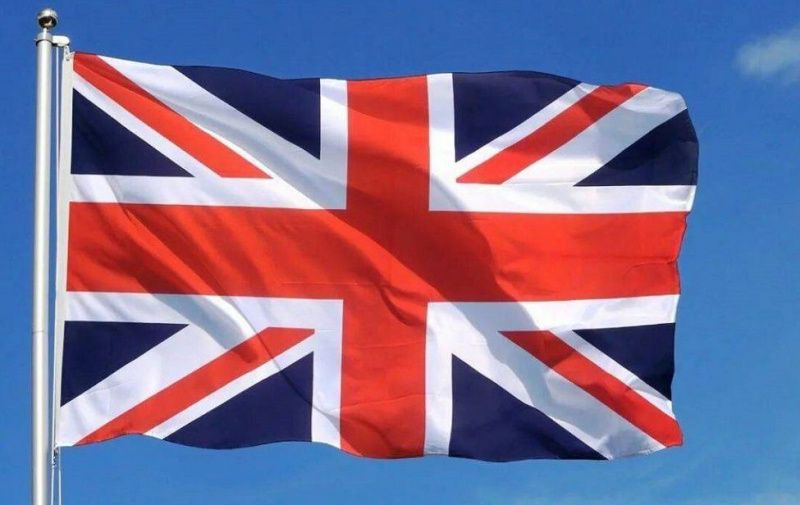UK Government: Methane Reductions Must Balance Wider Priorities
Efforts to reduce methane emissions in the UK dairy sector must be carefully balanced against critical priorities such as food security, biodiversity, rising food costs, and sustainable farming practices, according to a new report from the UK government’s Environment and Climate Change Committee.

The report, titled “Methane: Keeping Up Momentum,” underscores the need for a collaborative approach to methane mitigation that does not disproportionately burden farmers or consumers. It calls for clear guidance, consultation with industry stakeholders, and policies that incentivize sustainable practices while maintaining the UK’s global leadership on climate issues.
The report offers a range of proposals aimed at enhancing methane reduction efforts:
Environmental Land Management Schemes (ELMS): These could be leveraged as a policy tool to incentivize methane mitigation practices in the agricultural sector.
Improved Monitoring and Verification: Enhanced small-scale emissions tracking could boost data quality for the UK’s National Inventory Report and reward businesses implementing best practices.
Refined Agricultural Calculators: Upgrades to emissions calculators would improve accuracy and reliability for individual farms.
Sector-Specific Targets: The report suggests exploring separate methane emissions targets for different sectors and evaluating regulatory approaches to support these objectives.
Farmers Demand a Science-Based Approach
National Farmers’ Union (NFU) president Tom Bradshaw welcomed the report’s emphasis on a science and evidence-based approach.
“British farmers are global leaders in climate-friendly agriculture and are eager to do more,” Bradshaw said. “However, they cannot shoulder the responsibility alone. Clear policy direction, supported by productivity-enhancing technology and consumer engagement, is essential to achieving emissions reductions.”
NFU’s Policy Proposals
The NFU has outlined several measures to complement the government’s methane mitigation strategy:
Incentivize Key Performance Indicators: Support streamlined data collection and greenhouse gas assessments to reduce duplication and improve accuracy.
Collaborate on Accounting Tools: Harmonize greenhouse gas accounting tools for agriculture to provide consistent and actionable insights.
Livestock Information Services: Develop multi-species livestock management systems that integrate statutory and non-statutory data to enhance productivity.
Slurry Management Technology: Address economic and regulatory barriers to small-scale anaerobic digesters and advanced slurry management systems.
Safeguard Against Carbon Leakage: Implement strong trade safeguards to protect the sector from emissions outsourcing through imports.
Tax Incentives: Introduce targeted tax incentives to drive sustainable farming investments.
Metric Improvements and Nutritional Context
The NFU also advocates for dual reporting using both GWP100 and GWP* metrics, citing the strengths and weaknesses of each. It urges the government to integrate GWP* into farm-level calculators and include the nutrient density of foods when evaluating climate impacts.
Balancing Leadership and Practicality
As the UK strives to demonstrate international leadership on methane reduction, the report stresses that practical solutions must align with broader agricultural priorities. By investing in monitoring, incentives, and collaboration, policymakers aim to ensure sustainable progress without compromising food security or competitiveness in global markets.
The report offers a range of proposals aimed at enhancing methane reduction efforts:
Environmental Land Management Schemes (ELMS): These could be leveraged as a policy tool to incentivize methane mitigation practices in the agricultural sector.
Improved Monitoring and Verification: Enhanced small-scale emissions tracking could boost data quality for the UK’s National Inventory Report and reward businesses implementing best practices.
Refined Agricultural Calculators: Upgrades to emissions calculators would improve accuracy and reliability for individual farms.
Sector-Specific Targets: The report suggests exploring separate methane emissions targets for different sectors and evaluating regulatory approaches to support these objectives.
Farmers Demand a Science-Based Approach
National Farmers’ Union (NFU) president Tom Bradshaw welcomed the report’s emphasis on a science and evidence-based approach.
“British farmers are global leaders in climate-friendly agriculture and are eager to do more,” Bradshaw said. “However, they cannot shoulder the responsibility alone. Clear policy direction, supported by productivity-enhancing technology and consumer engagement, is essential to achieving emissions reductions.”
NFU’s Policy Proposals
The NFU has outlined several measures to complement the government’s methane mitigation strategy:
Incentivize Key Performance Indicators: Support streamlined data collection and greenhouse gas assessments to reduce duplication and improve accuracy.
Collaborate on Accounting Tools: Harmonize greenhouse gas accounting tools for agriculture to provide consistent and actionable insights.
Livestock Information Services: Develop multi-species livestock management systems that integrate statutory and non-statutory data to enhance productivity.
Slurry Management Technology: Address economic and regulatory barriers to small-scale anaerobic digesters and advanced slurry management systems.
Safeguard Against Carbon Leakage: Implement strong trade safeguards to protect the sector from emissions outsourcing through imports.
Tax Incentives: Introduce targeted tax incentives to drive sustainable farming investments.
Metric Improvements and Nutritional Context
The NFU also advocates for dual reporting using both GWP100 and GWP* metrics, citing the strengths and weaknesses of each. It urges the government to integrate GWP* into farm-level calculators and include the nutrient density of foods when evaluating climate impacts.
Balancing Leadership and Practicality
As the UK strives to demonstrate international leadership on methane reduction, the report stresses that practical solutions must align with broader agricultural priorities. By investing in monitoring, incentives, and collaboration, policymakers aim to ensure sustainable progress without compromising food security or competitiveness in global markets.
Key News of the Week










